Nothing ruins a fun-filled holiday celebration like an emergency trip to the hospital, whether the patient has two legs or four. Ensure all your festivities are merry and bright by keeping your furry pal out of mischief by following our Westerville Veterinary Clinic team’s tips to protect your pet from five common holiday hazards.
#1: The holiday feast and your pet
If your pet eats certain foods you serve at your holiday table, they may experience toxicity, pancreatitis, or a gastrointestinal (GI) obstruction. Do not invite your four-legged friend to your holiday feast, and prevent them from eating any of the following dangerous foods:
- Turkey and ham — Turkey skin, drumsticks, and ham are high-fat foods that may also include seasonings, such as onions, garlic, and salt, which are unhealthy for pets. While you may think allowing your furry pal to enjoy a turkey drumstick is a great way to spoil them, cooked bones are exceptionally brittle and can easily splinter and pierce your pet’s mouth or lodge in their GI tract.
- Mashed potatoes and gravy — Creamy mashed potatoes swimming in rich gravy are a recipe for disaster because they can cause your pet toxicity and pancreatitis. This tasty side dish is often loaded with garlic, chives, butter, and fat.
- Stuffing — Traditional turkey stuffing generally contains onions and garlic, but more unusual recipes may include currants, all of which are toxic to pets.
- Desserts — Sugary, high-fat desserts can upset your pet’s stomach, pancreas, and liver, but sugar-free options are no safer. Low-calorie baked goods sweetened with xylitol, a popular sugar substitute, can cause your pet to experience a dangerous drop in blood sugar, and dogs may experience liver failure. In addition, your pet should not eat pumpkin pie because, despite containing a healthy fruit, this dessert includes toxic spices such as nutmeg and cloves.
If you want to spoil your pet with a safe holiday feast, give them small portions of mashed sweet potatoes, green beans, and boneless, skinless turkey breast. To prevent your pet from experiencing toxicity and other health issues, ensure all the foods you give them are plain and unseasoned.
#2: The holiday decorations and your pet
If you’re aiming to be the brightest house on the block for the holidays, you likely have electrical cords snaking all over your yard and inside your home. Curious pets may gnaw these intriguing items that look like snakes and suffer from electrical burns or shocks. Cover all cords or keep them out of your pet’s reach.
Flickering candles are another common potential decoration disaster, as the dancing flame may entice your pet to sniff or paw at it. Singed whiskers, burnt paws, and a house fire can result, so opt for battery-powered flames.
#3: The festive plants and your pet
While poinsettias are commonly considered a toxic seasonal plant, they typically cause a pet who ingests them mild irritation. Other festive plants are much more toxic, and you should keep them out of your home and yard or, at a minimum, out of your pet’s reach. Ensure your pet does not ingest or brush against these hazardous plants:
- Amaryllis
- Mistletoe
- Holly
- Lily
- Yew
- Cyclamen
- Christmas tree (e.g., spruce, fir, balsam, pine)
Your decorated Christmas tree, especially a live one, poses numerous hazards to your furry pal, including fragile glass ornaments, salt-dough creations, prickly pine needles, and irritating tree sap and oil. If your pet ingests tinsel, ribbon, or another string-like adornment, they can develop a foreign body obstruction that requires surgical removal. The water in your live tree’s base is full of chemicals, mold, bacteria, and other substances that can make your pet sick if they drink it. Protect your pet and your Christmas tree from harm by placing a barrier, such as a pet gate, around the tree.
#4: The guests and your pet
Well-meaning guests who want to make friends with your pet can pose a serious threat. Whether they offer your pet toxic foods or continually force unwanted affection on your furry pal, dangerous situations can develop. Instruct guests to avoid interacting with your pet unless your furry pal initiates an interaction, and to refrain from giving your pet any foods of which you have not approved.
Give your pet a safe space to escape from guests and decompress alone. Set up your bedroom or a spare room with a plush bed, treat puzzle, and a favorite toy. Play white noise to help drown out the crowd’s chatter.
#5: The gifts and your pet
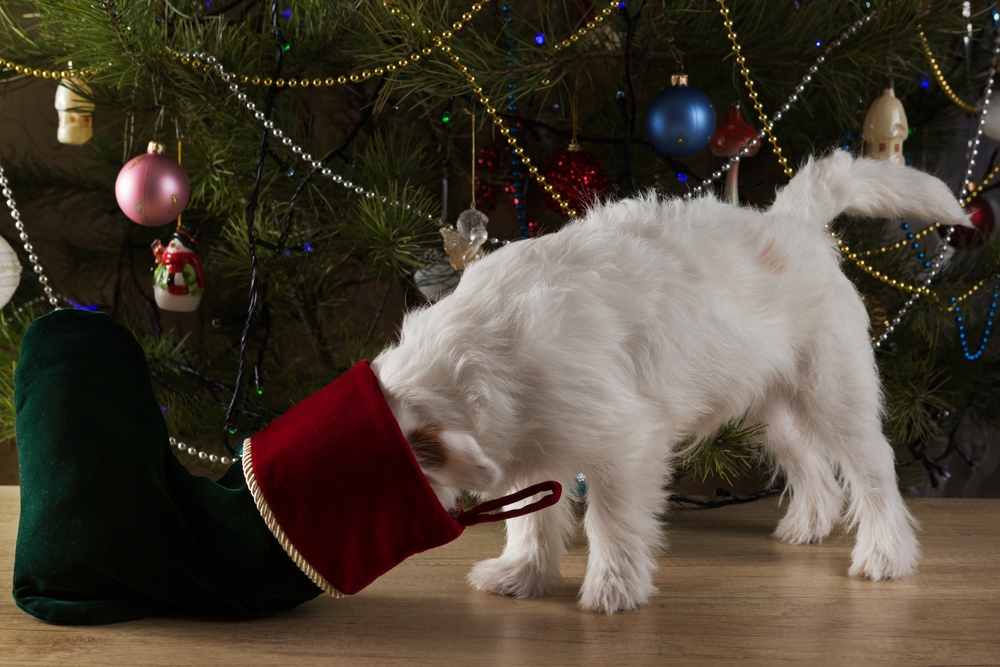
One of the best parts of the holiday season is seeing a loved one’s face light up with delight after opening the perfect present. Although you might think your pet will have trouble unwrapping their gifts, they’re likely to shred apart any package that contains a treat or squeaky toy. Avoid placing your pet’s gifts under the Christmas tree or hanging their stockings filled with treats until you want your furry pal to open their presents. In addition, when your pet is opening their gifts, supervise them to help prevent them from ingesting any wrapping paper and ribbons.
Household hazards, festive and otherwise, can cause your furry pal harm at any time of day or night. Fortunately, our Westerville Veterinary Clinic team has increased our office hours so we can treat your pet for problems that occur late at night or during the weekend. If your four-legged friend gets into trouble this holiday season, give us a call.



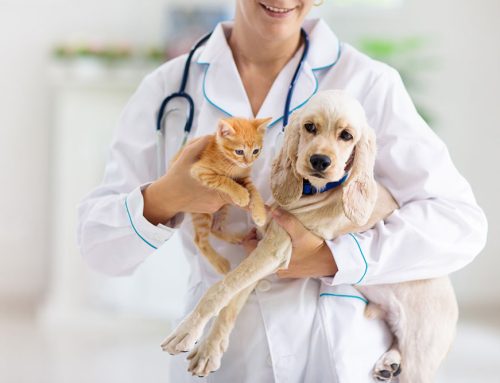
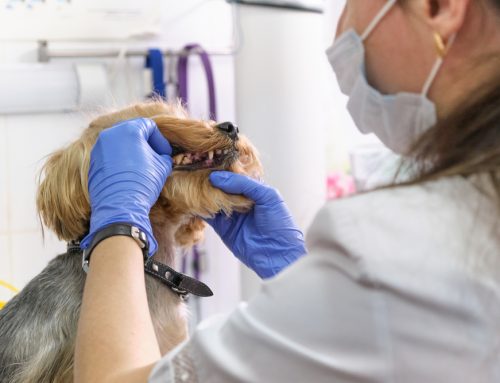
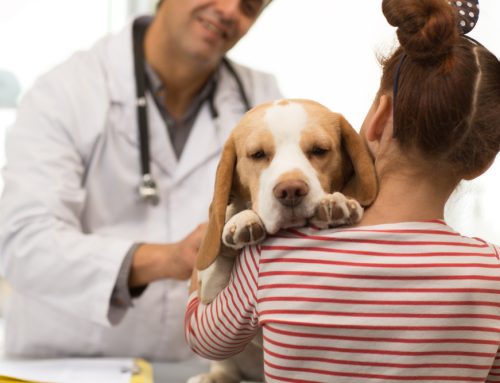
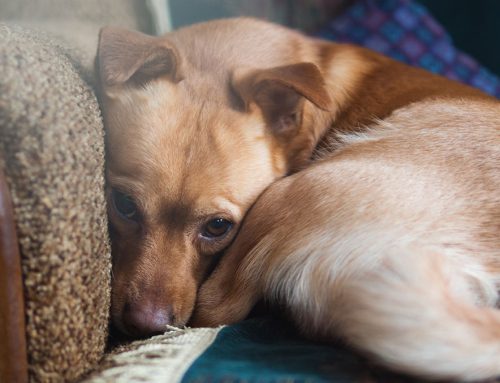
Leave A Comment